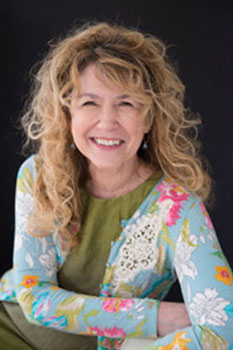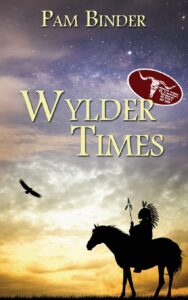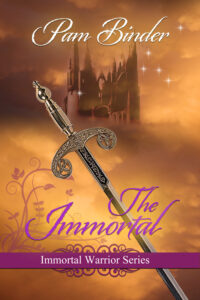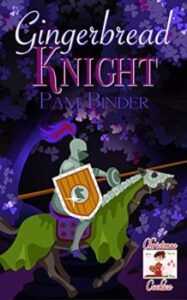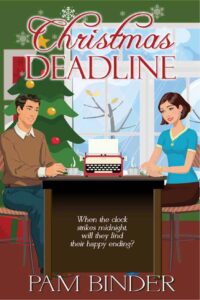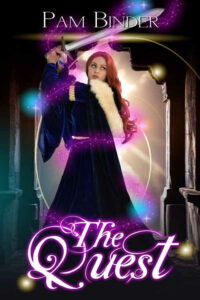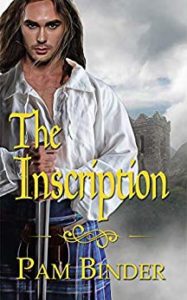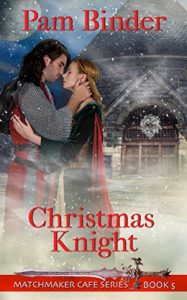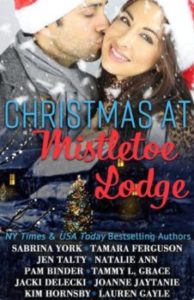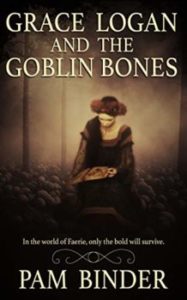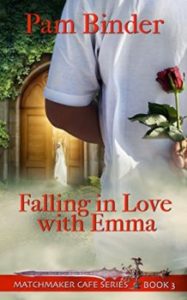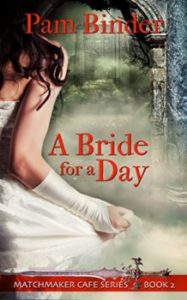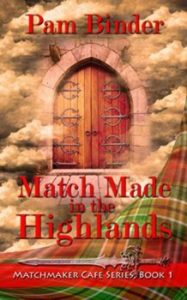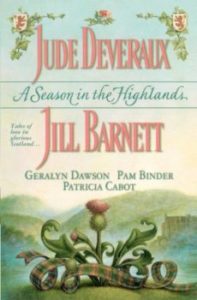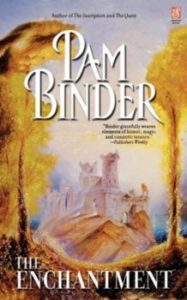So You Want To Be A Writer? Here’s How To Make The Transition From Your Day Job
originally posted on Forbes.com
Is your dream to become a writer?
Ever dreamed of being a writer? Not sure how to get started or make the transition from working 9 to 5 in an office to becoming a published author? Meet Pam Binder, an award-winning and New York Times best-selling author, instructor for the Popular Fiction course at the University of Washington Extension, and president of the Pacific Northwest Writer’s Association (PNWA). Pam made the transition from working full-time as an office manager for a middle school while raising three children to fulfill her dream of becoming a writer. Find out how!
Back in the mid-1990s Pam Binder had a dream of becoming a writer but wasn’t sure she could turn it into reality. Ms. Binder knew she loved to write stories. She’d drawn inspiration from her experiences with an imaginary friend when she was three, a near-death experience at eight, and adventures in New Orleans with her poet-grandmother, but realized she needed to better understand how to craft her ideas into a novel.
While taking writing classes at the University of Washington and attending conferences, she dedicated her lunch hours to writing her first novel, a historical time travel romance set in 1566 near the mist-shrouded waters of Lochness in the Scottish Highlands. Three years later she felt her novel was ready for review. She volunteered at the 1999 Pacific Northwest Writers Association (PNWA) Summer Conference and was introduced to an agent who was interested in her work. In January 2000, The Inscription, was published by Pocket Books, a division of Simon and Schuster.
Pocket Books published three additional historical novels, The Quest, The Enchantment, and My Secret Protector. Ms. Binder also wrote a novella for Pocket Books, The Matchmaker, which was included in The New York Times best-selling anthology, A Season in the Highlands. After that, Pam quit her day job and never looked back, becoming a writing instructor, president of PNWA, and author.
Like her poet-grandmother, Pam believes that travel and experiences enrich our writing as well as our lives. She has traveled throughout the United States, Canada, Mexico, as well as Ireland, Scotland, Great Britain, Spain, France, Portugal, Italy, and most recently, Hong Kong. Read on to find out how Pam was able to make the transition from a 9 to 5 day job to a full-time writer and learn her tips so you can also accomplish your writing dreams.
Q&A with Pam Binder
Author Pam Binder
Q: When did you realize you wanted to become a writer and what motivated you to actually begin writing?
Pam: My story is not unlike other writers. I can’t remember a time when I wasn’t either reading or writing. It was a part of me, like breathing, the ability to jump rope, paint, or add numbers in my head. But I wanted to do more than just read and write. I wanted my stories published. When I read an advertisement in a magazine that the Pacific Northwest Writer’s Association (PNWA) was holding an annual conference, I decided it was a sign to make my dream of publishing my stories a reality.
Q: Were your family and friends supportive of your writing efforts?
Pam: I was lucky. My family and friends are very supportive. In fact, for my first launch party, my husband was the one who invited all our friends, neighbors, and his business associates. There was standing room only. And to this day, whenever we meet someone new, he always says, “Do you know that my wife is a writer?” His support has been an added gift that I will always cherish.
Q: In most situations, someone who wants to try a serious hand at writing can’t quit their day job because they depend on the income from their current employer. What advice do you have for getting started as a writer?
Pam: My advice is simple. All you need is 15 minutes a day. Ignore those people who say you have to spend 3, 4, or 5 hours a day in order to become a serious writer. Let me say it again, if you can write even 15 minutes a day, you can write a novel. I know this is true, because I did it. Married with three small children, I wrote my first book on my lunch hour because that was the only spare time I had. In addition to my responsibilities as a wife and mother, I also worked full time as an office manager for a middle school, played and coached soccer, and was the president of our children’s Parent Teacher Association (PTA). So, if there are any words of wisdom I can share it’s that you really can follow your dream. If your dream is to become a published author, keep writing, learn all you can about the craft as well as the business side, and never give up. The art of storytelling is a gift that everyone can attain.
Q: It can be difficult to transition from one career to another and many people often become discouraged while trying to become a writer. What advice can you offer to women in these situations?
Pam: The greatest advice I can give to women is to stay connected. If writing is your passion, join a writer’s organization, critique groups, or take classes on writing. The positive feedback and encouragement you gain can help you over any, and I repeat, any rough patch. Going it alone is a disaster in the making. We are always stronger when we are joined together. I think this is especially true with women. I think joining a writer’s association is a great way to get started as an aspiring writer.
Q: Your comment about joining a writer’s association is a perfect segue for my next question. How do writer’s organizations like the Pacific Northwest Writer’s Association (PNWA) help aspiring writers?
Pam: PNWA is similar to many writers’ associations throughout the world in their effort to support aspiring writers. For example, PNWA annually hosts a writer’s conference that provides workshops, panels, featured speakers, agent pitch sessions, and an opportunity for networking with writers, editors, agents, and industry experts. It’s a great environment to learn more about the craft and business side of writing while meeting and gaining insight from the community. It’s also a way to directly connect with agents and editors, get their feedback, promote and potentially sell a manuscript.
PNWA provides monthly member workshops in the greater Seattle area, which are also available online. And our monthly publication, Author Magazine, posts interviews with successful authors willing to give back to the community and help others learn from their experiences.
There are other, wonderful non-profit organizations like PNWA in cities all around the world. All you need to do is visit your libraries, bookstores, or go online for a listing. If you write romances, or women’s fiction, Romance Writers of America has chapters in every state and like PNWA, it offers monthly meetings and an annual conference. There are also children’s writers’ organizations, organizations for mystery writers, science fiction and fantasy writers, and on and on.
The benefits vary, so my advice is to attend a meeting and get to know the people. Of course I can only speak from my own experience, but it was not until I became involved with the writing community in my area that things started to happen for me. Writer’s groups offer support and valuable information on the craft and business side of writing. They also offer inspiration. Just recently I heard a published author talk on the topic of rejection. She said, “Instead of hearing the word, No, in the rejection, think – Not yet.”
Q: You stepped in as the Pacific Northwest Writers Association (PNWA) program director and president in late 2005. Why did you decide to take the lead of this non-profit?
Pam: The Pacific Northwest Writers Association (PNWA) is a non-profit organization dedicated to helping authors achieve their goal from pen to publication. Because I’ve always believed in the power of volunteering, I volunteered for one of their conferences. Fast forward a few years; I succeeded in getting my agent in 1999 at the PNWA summer conference and a book deal with Simon and Schuster. When I was invited to be on the board of PNWA, I gladly accepted. I love everything having to do with writing, so this has been a good fit for me.
Q: You mentioned the importance of having supportive family, friends, and writing associates to become a writer. At Career Woman, Inc., we value the importance of mentorship in career development. Who has been your most important mentor and how did he/she help you achieve success?
Pam: My poet-grandmother, was a big influence in my life. She was a strong woman who was not only a poet, but played the piano, sang opera, painted, and gave inspirational talks on the power of believing in yourself. She was not only a role model and mentor but a huge inspiration to me. My mother was also a wonderful mentor. She had a quiet strength that I am only now starting to appreciate. My mother was passionate about making sure my sister and I went to college because she felt education was the great equalizer. Books were as much a part of our life as the air we breathed. She encouraged me to read, encouraged me to tell my stories, and encouraged me to never give up. She passed on before my books were published, but I dedicated one of them to her with these words: “In memory of my mother, Irene Louise Pleier, who taught me that the only barriers around your dreams are the ones you build yourself.”
Lisa’s Summary: While the thought of becoming a writer might at first seem overwhelming – especially while you’re already working a full-time job – Pam’s advice is excellent. Joining a writer’s association will introduce you to a world of opportunities to attend writing seminars, classes, pitch to agents and editors, as well as make those ever-critical connections in the writing community. If you’re ready to turn your dreams into a reality, get started now by writing just 15 minutes each day. Join Pam at this year’s PNWA summer conference. Details are available on the website at www.pnwa.org. Good luck and good writing!
